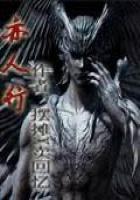"I believe I do, though I am very fond of that dog of yours. I think Iknow more about horses than dogs. Have you noticed Scamp very much?""Oh, yes; I often watched her. She is such an amusing little creature.""She's the most interesting one we've got, that is, after Fleetfoot.
Father got her from a man who couldn't manage her, and she came to us with a legion of bad tricks. Father has taken solid comfort though, in breaking her of them. She is his pet among our stock. Isuppose you know that horses, more than any other animals, are creatures of habit. If they do a thing once, they will do it again.
When she came to us, she had a trick of biting at a person who gave her oats. She would do it without fail, so father put a little stick under his arm, and every time she would bite he would give her a rap over the nose. She soon got tired of biting, and gave it up.
Sometimes now, you'll see her make a snap at father as if she was going to bite, and then look under his arm to see if the stick is there. He cured some of her tricks in one way, and some in another. One bad one she had was to start for the stable the minute one of the traces was unfastened when we were unharnessing. She pulled father over once, and another time she ran the shaft of the sulky clean through the barn door. The next time father brought her in, he got ready for her. He twisted the lines around his hands, and the minute she began to bolt, he gave a tremendous jerk, that pulled her back upon her haunches, and shouted, 'Whoa!' It cured her, and she never started again, till he gave her the word. Often now, you'll see her throw her head back when she is being unhitched. He only did it once, yet she remembers. If we'd had the training of Scamp, she'd be a very different animal. It's nearly all in the bringing up of a colt, whether it will turn out vicious or gentle.
If any one were to strike Fleetfoot, he would not know what it meant. He has been brought up differently from Scamp.
"She was probably trained by some brutal man who inspired her with distrust of the human species. She never bites an animal, and seems attached to all the other horses. She loves Fleetfoot and Cleve and Pacer. Those three are her favorites.""I love to go for drives with Cleve and Pacer," said Miss Laura, "they are so steady and good. Uncle says they are the most trusty horses he has. He has told me about the man you had, who said that those two horses knew more than most 'humans.'""That was old Davids," said Mr. Harry; "when we had him, he was courting a widow who lived over in Hoytville. About once a fortnight, he'd ask father for one of the horses to go over to see her.
He always stayed pretty late, and on the way home he'd tie the reins to the whip-stock and go to sleep, and never wake up till Cleve or Pacer, whichever one he happened to have, would draw up in the barnyard. They would pass any rigs they happened to meet, and turn out a little for a man. If Davids wasn't asleep, he could always tell by the difference in their gait which they were passing. They'd go quickly past a man, and much slower, with more of a turn out, if it was a team. But I dare say father told you this. He has a great stock of horse stories, and I am almost as bad.
You will have to cry 'halt,' when we bore you.""You never do," replied Miss Laura. "I love to talk about animals. Ithink the best story about Cleve and Pacer is the one that uncle told me last evening. I don't think you were there. It was about stealing the oats.""Cleve and Pacer never steal," said Mr. Harry. "Don't you mean Scamp? She's the thief.""No, it was Pacer that stole. He got out of his box, uncle says, and found two bags of oats, and he took one in his teeth and dropped it before Cleve, and ate the other himself, and uncle was so amused that he let them eat a long time, and stood and watched them.""That was a clever trick," said Mr. Harry. "Father must have forgotten to tell me. Those two horses have been mates ever since Ican remember, and I believe if they were separated, they'd pine away and die. You have noticed how low the partitions are between the boxes in the horse stable. Father says you wouldn't put a lot of people in separate boxes in a room, where they couldn't see each other, and horses are just as fond of company as we are.
Cleve and Pacer are always nosing each other. A horse has a long memory. Father has had horses recognize him, that he has been parted from for twenty years. Speaking of their memories reminds me of another good story about Pacer that I never heard till yesterday, and that I would not talk about to any one but you and mother. Father wouldn't write me about it, for he never will put a line on paper where any one's reputation is concerned."















